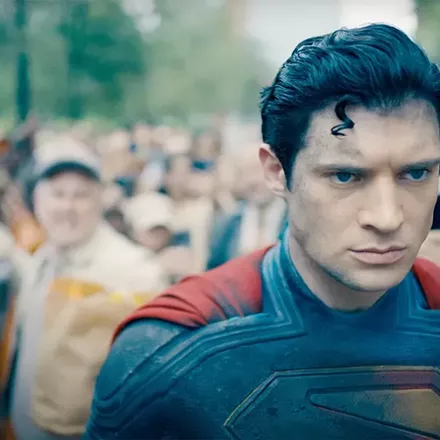David Cronenberg has spent a 35-year filmmaking career exploring the line where people cross into an obsession that comes to define them and prevent them from connecting with other humans. The world of money in Don DeLillo’s Cosmopolis might be one of the most natural fits he’s ever come across—and the result is a movie that’s fascinating even when it’s inscrutable.
Robert Pattinson plays Eric Packer, a billionaire speculator in the financial markets whose goal in the narrative is simple: He’s just trying to get across town to his preferred barber for a haircut, even if it’s one he doesn’t really need. But his fortune is vanishing as his bet on the Chinese yuan goes bad, and a simple ride in his massive stretch limousine is slowed by everything from a celebrity funeral procession to a swelling movement of social unrest.
The “story” consists almost entirely of a series of conversations between Packer and various other characters—his employees (Jay Baruchel, Samantha Morton), his security chief (Kevin Durand), his new wife (Sarah Gadon)—that range from “somewhat opaque” to “almost entirely opaque.” The flat, clinical nature of the dialogue has driven many viewers to distraction, yet Pattinson in particular is tremendously effective at conveying a familiar Cronenberg theme: basic human desire colliding with a cold, technological world that doesn’t care if you get what you want or not.
It’s impossible to avoid the Great Recession-era subtext flowing throughout Cosmopolis, and equally impossible to ignore that the metaphorical/allegorical material gets laid on fairly thick, especially in the Occupy-esque movement that takes a rat as its symbol. Yet Cronenberg repeatedly finds moments of eye-opening clarity punctuated with dark humor, building to a gripping exchange between Packer and a would-be assassin (Paul Giamatti). If Cosmopolis remains chilly and remote, it does so in a way that often feels unsettlingly familiar.
COSMOPOLIS
Robert Pattinson, Sarah Gadon, Paul Giamatti
Rated R
Speaking of ,
-
Walk of Shame, The Lego Movie
New DVD/VOD Tuesday, June 17
- Jun 16, 2014
-
Drinking-Class Zero
Following a night of drinking, Wendy Simpson, 25, walked to a McDonald’s restaurant in West Yorkshire, England, where she was told that the counter was closed and only the drive-through was open but that she couldn’t be served
- Jun 16, 2014
-
How to Train Your Dragon 2
Dragon 2 shows DreamWorks is still willing to be daring
- Jun 13, 2014
- More »
More by Scott Renshaw
-
Movie reviews: Eddington, Don't Let's Go to the Dogs Tonight, Smurfs
Three new movies in theaters for July 2025.
- Jul 16, 2025
-
July Weekend Festivals Roundup
Ogden Arts Festival, Draper Days, Utah County Lantern Festival, American Fork Steel Days and more.
- Jul 16, 2025
-
Film Reviews: New Releases for July 11
Superman, Abraham's Boys, Sovereign, Kill the Jockey
- Jul 10, 2025
- More »
Latest in Film Reviews
Readers also liked…
-
Sundance 2025 wrap-up plus February special screenings
Uncertainty about the future location shifts focus away from the movies
- Feb 5, 2025









